Page 44 of 67
Implications of Zero Suicide for Suicide Prevention Research
Sisti DA, Joffe S. JAMA. Published online October 04, 2018. doi:10.1001/jama.2018.13083 The zero suicide policy was developed by the US National Action Alliance for Suicide Prevention in partnership with federal agencies and has been adopted by health systems worldwide. This editorial debates the value of such an approach and the constraints that it implicitly places upon […]
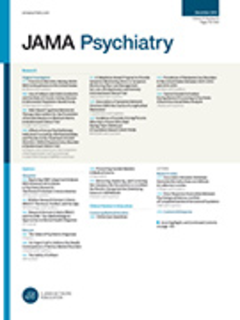
October 13, 2018
Short‐term change and prediction of suicidal ideation among adolescents: a daily diary study following psychiatric hospitalization
Czyz EK, Horwitx AG, Arango A, et al. Journal of Child Psychology and Psychiatry. Published online 24 September 2018. https://doi.org/10.1111/jcpp.12974 This study of over 600 young people who received daily texts to evaluate their mood and suicidal ideation demonstrates that suicidal thoughts fluctuate considerably during the post-hospitalisation period. Connectedness appeared to be protective and may […]
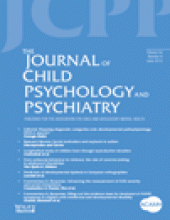
Mindfulness-based group therapy: Impact on psychiatrically hospitalized adolescents
Sams DP, Handley ED, Alpert-Gillis LJ. Clinical Child Psychology and Psychiatry. Vol 23, Issue 4, pp. 582 – 591. First Published May 20, 2018. https://doi.org/10.1177/1359104518775144 This study provides preliminary evidence for the effectiveness of iMatter (Improve Mindful ATTention, Enhance Relaxation), a group-based mindfulness intervention for adolescents aged 13-17 years who are receiving psychiatric inpatient care. Improvements were noted in mood […]
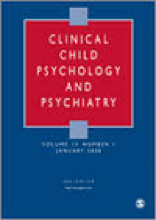
Adolescent Δ9-Tetrahydrocannabinol Exposure and Astrocyte-Specific Genetic Vulnerability Converge on Nuclear Factor-κB-Cyclooxygenase-2 Signaling to Impair Memory in Adulthood
Jouroukhin Y, Zhu X, Shevelkin AV, et al. Biol Psychiatry. 2018 Aug 16. pii: S0006-3223(18)31746-3. doi: 10.1016/j.biopsych.2018.07.024. [Epub ahead of print] Why do only some people develop cognitive impairment with cannabis use? This biologically-oriented article for the interested shows that genetic predisposition within brain cells known as astrocytes may mediate the cognitive impairments via convergent inflammatory signalling. https://www.ncbi.nlm.nih.gov/pubmed/30219209
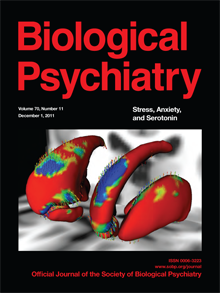
Cognitive and socioemotional functioning at 4 ½ years in children born to mothers who have received treatment for substance abuse problems while pregnant
Haabrekke, K, Siqveland, T, Nygaaard E, et al. Infant Ment. Health J., 2018: 39: 581-594. doi:10.1002/imhj.21733 This study of children born to mothers who had abused substances while pregnant compared their long-term development with those of mothers who had mental health problems and those without any issues. No differences in cognitive functioning were identified between […]

“Will You Remember Me?”
Pao M, et al. Child and Adolescent Psychiatric Clinics , Volume 27 , Issue 4 , 511 – 526 This article provides useful advice about discussing death with children and adolescents faced with life-limiting illnesses and encourages their involvement in decision-making processes. https://www.childpsych.theclinics.com/article/S1056-4993(18)30636-9/fulltext?dgcid=raven_jbs_etoc_email
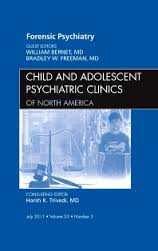
Multidimensional family therapy in adolescents with a cannabis use disorder: long-term effects on delinquency in a randomized controlled trial
van der Pol TM, Hendricks V, Rigter H, et al. Child and Adolescent Psychiatry and Mental Health201812:44. https://doi.org/10.1186/s13034-018-0248-x This multi-site European randomised controlled trial of 109 adolescents with cannabis use disorder and behaviour problems found that multidimensional family therapy (MFT), an expensive and systemically oriented treatment for conduct disorder and more cost-effective cognitive behaviour therapy […]
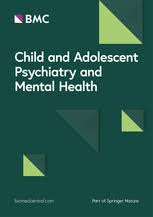
September 12, 2018
Amisulpride and olanzapine followed by open-label treatment with clozapine in first-episode schizophrenia and schizophreniform disorder (OPTiMiSE): a three-phase switching study
Kahn RS, Winter van Rossum I, et al. Lancet. Published online:August 13, 2018 DOI:https://doi.org/10.1016/S2215-0366(18)30252-9 This three-phase study conducted in 27 European centres investigated the value of reducing a currently used three-step treatment algorithm for first episode psychosis (Amisulpiride to Olanzapine to Clozapine) to two steps (Amisulpiride to Clozapine). The authors conclude that the two-step algorithm […]

Comparative efficacy and tolerability of medications for attention-deficit hyperactivity disorder in children, adolescents, and adults: a systematic review and network meta-analysis
Cortese S, Adamo N, Del Giovane C, et al. Lancet 5(9): 727-738. Open Access Published: August 07, 2018 DOI:https://doi.org/10.1016/S2215-0366(18)30269-4 This large systematic review of 113 individual studies supports the value of using methylphenidate to treat ADHD in children and amphetamines to treat ADHD in adults. Most studies focussed on short-term outcomes and found medications to […]

Neurotrophins, cytokines, oxidative stress mediators and mood state in bipolar disorder: Systematic review and meta-analyses
Rowland T, Perry B, Upthegrove R, et al. The British Journal of Psychiatry, 213(3), 514-525. doi:10.1192/bjp.2018.144 This review of 53 studies investigated whether specific biomarkers could predict mood states in people with bipolar disorder. Although individual markers were unable to do so, the combination of high-sensitivity C-reactive protein (CRP), interleukin-6, brain-derived neurotrophic factor (BDNF), tumour […]

Page 44 of 67
Got an event to promote? Submit your event here

